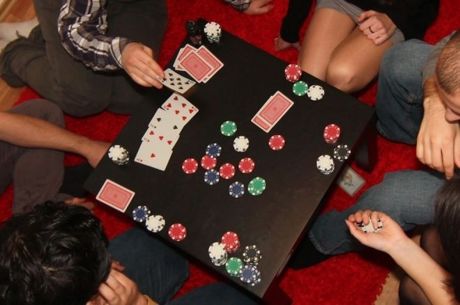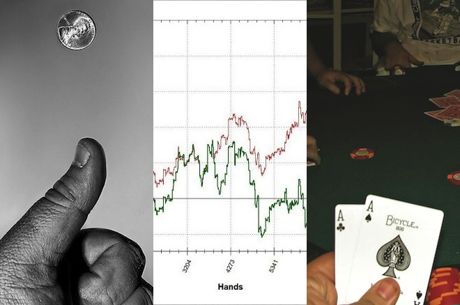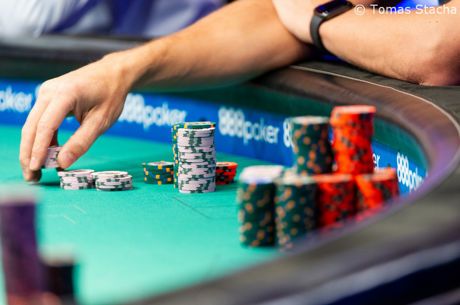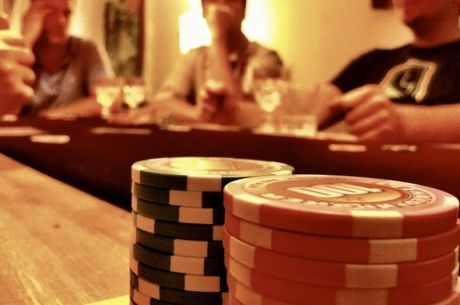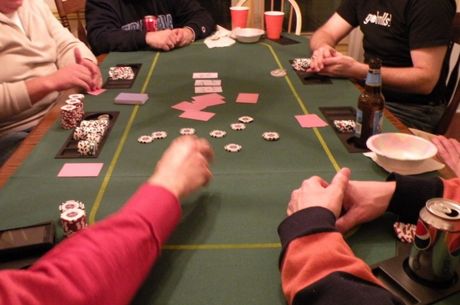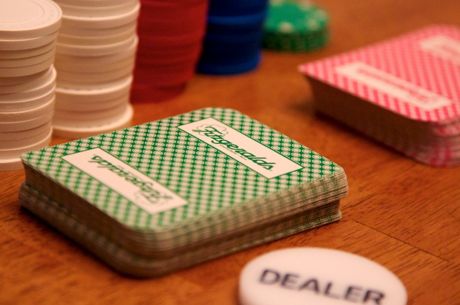Taking Advantage of Weak-Tight Opponents in Home Games
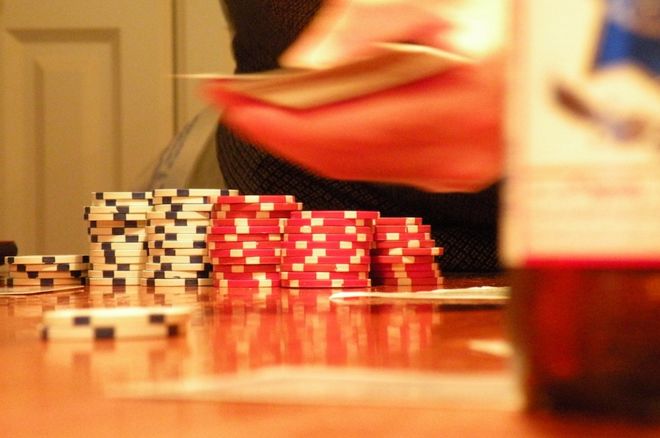
Many regular home game players tend to fall into the category of "weak-tight." This designation refers to players who fear variance. These players have very high starting standards for playing hands, followed by weakness in the face of the aggression.
Weak-tight players have three tendencies:
- they enter few hands
- they tend to overbet the pot to win it without confrontation
- they tend to fold under the pressure of aggressive opponents
If you want to be a consistent winner in a home poker game, or in a casino game with this kind of opponent, you need to know how to take advantage of these weak-tight players.
There are generally two ways to exploit these opponents. One is to "out-tight" them. By that I mean that you can seek to play a narrower range of starting hands than they, waiting patiently until you get truly premium hands against their second-best hands and hope that you can trap them and stack them off when they dive in for the kill.
But man, that's no fun. And if you start playing that way in your home game you might suck all of the action out of it �� killing it eventually. I recommend an alternative method.
The other way to take advantage of weak-tight players is to exploit their tendency to fold when they are in doubt, which will be much of the time if you become the aggressor. That's what I recommend for you and your home game. Shove those timid souls around.
Let's look at a couple of examples of how you can use aggression to take advantage of a weak-tight opponent.
Example #1: Aggression Before the Flop
You're playing $1/$2 no-limit hold'em, and you have a few of these weak-tight players in the game, including one on your immediate right.
Ideally, you'd want these types of players on your left, following your action, since they exert so little pressure. You'd rather save the seats to your left for them, rather than the really strong or aggressive players who you'd like on your right so you could see their action before you decide to enter a pot. But for the purposes of exploitation, having this player on your right works just fine.
As it happens, you're the button in this hand. A couple of guys call the $2 blind �� a frequent occurrence in this game of many weak-tight players. The rest fold, waiting for their big pairs or ace-king. The last one, Rodney, sitting on your immediate right in the cutoff position, raises to $10. You look down and see J?J?.
Rodney is weak-tight. You actually think about folding, figuring him for AxAx, KxKx, or QxQx �� or maybe AxKx. But you realize that he's in a position where even a weak-tight player may raise with something less than a conventionally strong hand.
Weak-tight players aren't completely averse to bluffing or playing medium-strength hands, it's just not something they do from anywhere but very late position. His raise probably means his range includes fairly big AxXx hands, a mid-to-large pairs, or maybe even some big suited connector cards like J?10?, Q?J?, or even something as weak as K?9?.
If your image is anything except maniac, you can probably take down the pot by reraising to $25. If you somehow get repopped, fold. If you get called, expect weak-tight Rodney to check to you on the flop. You should then make a continuation bet of about $35 or so to take down the pot.
Rodney doesn't like confrontation and will almost surely back away if he isn't the aggressor in the hand. Your aggression scares him, making him think that you have a really strong hand. He's always seeing dragons under the bed, and doesn't want to take the chance that you may already be far ahead of him.
Example #2: Aggression After the Flop
Here's a similar situation that would be initiated on the flop. Rodney is sitting to your left in this hand. You're both in mid-position with relatively even stacks of $300 or so. You've been your relatively tight and aggressive self. And Rodney knows you're a good solid player.
A couple of players have called the $2 blind and the action gets to you. You have J?10? and raise to $12, hoping that weak-tight Rodney will probably fold along with the other players between you and the button. Rodney unexpectedly calls, then everyone else folds, including the blinds and the limpers to your right.
The flop comes A?9?9? and you're first to act. One line you might take would be to make a continuation bet, expecting that timid Rodney would fold, afraid you had trips or an ace. It will generally work, but the pot you win will be relatively small.
There's a more profitable line you might follow to exploit him �� to check, with the intention of check-raising if Rodney bets the flop. If he checks behind you on the flop, you can try the same move on the turn (if the turn is a blank). If he bets, Rodney is apt to make a largish bet �� bigger than he should �� in order to discourage you from calling along after you have shown weakness. As noted above, weak-tight players often overbet to win pots right away, rather than risk hands developing in ways that will scare them.
In fact, unless Rodney has a super-strong hand and doesn't fear your improvement, you can expect him to bet in this situation. Your unexpected check-raise will almost surely win the pot from him. Unlike a loose-passive player, he is unlikely to call your check-raise, not wanting to go any further with what he fears is second-best.
Conclusion
You exploit Rodney, and other weak-tight players like him, by putting him in situations where his fear of your bet or of the future gets him into trouble. Unlike calling stations, weak Rodney errs on the side of folding too readily, once he has picked up one of the few hands he decides to play.
Weak-tight players can actually make for a very sweet home game, as they allow you to manipulate them after they are in hands more frequently than is the case with other types of players. The main risk you have is that you may attempt to take advantage of their weakness too readily, forgetting that sometimes they really will have hands that will cause them to stand up to you. Don't fool yourself into thinking you should just apply more pressure in those situations, only to lose your stack when you should have only lost your bet.
All told, however, the advantages of playing aggressively against weak-tight opponents far outweigh the risks. You should always be on the lookout for players like these to invite to your home game!
Ashley Adams has been playing poker for 50 years and writing about it since 2000. He is the author of hundreds of articles and two books, Winning 7-Card Stud (Kensington 2003) and Winning No-Limit Hold'em (Lighthouse 2012). He is also the host of poker radio show House of Cards. See www.houseofcardsradio.com for broadcast times, stations, and podcasts.
Photo: "Poker Night" (adapted), Mark Brennan CC BY-SA 2.0.

